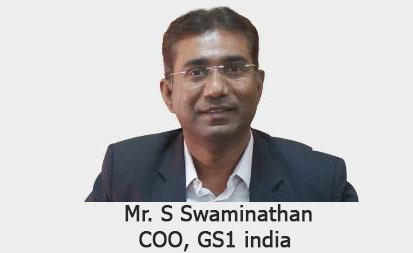Adoption of Global Standards within Pharma Supply Chains is Crucial
Amid the coronavirus pandemic, many industries witnessed the supply chain disruption and the pharmaceutical sector is no different. As per a KPMG report, Indian domestic pharma industry is heavily dependent on China imports for ingredients

Amid the coronavirus pandemic, many industries witnessed the supply chain disruption and the pharmaceutical sector is no different. As per a KPMG report, Indian domestic pharma industry is heavily dependent on China imports for ingredients and healthcare equipment. The medical fraternity is tirelessly working to defeat the deadly coronavirus and to do that they need to ensure that they have an adequate access of all required healthcare products, including PPE kits, sanitizers, besides medicines and vaccines.
One of the major hindrance in this effort is caused by the wide availability of counterfeit medicines in country that puts patients on risk. A great deal of effort has been made by the pharmaceutical companies in this regard and to conform to the stringent regulatory requirements and international standards.
GS1 India is also working with Authentication Solution Provider Association (ASPA) to help pharmaceutical companies and medical device manufacturers adopt global standards based anticounterfeiting solutions in their
supply chain Further most of pharmaceutical manufacturers are adhering to global GS1 standards in their export supply chain to ensure efficiency and patient safety.
By uniquely identifying products and consignments in the supply chains with GS1 standards, manufacturers can have better control by ensuring visibility in the supply chain. This visibility can also be translated into product traceability, counterfeit detection and product authentication solutions, throughout the supply chain, as these industry standards are vendor & technology independent and hence, can be used by all trading partners.
GS1 works closely with the global healthcare community bringing together all stakeholders, associated with the pharma industry.Hospitals, pharmaceutical and device manufacturers across the globe are using GS1 global standards to enable targeted recalls, ensure product traceability, detect counterfeits, enable product authentication,
reduce wastage, increase accuracy in ordering, improve inventory visibility and stock control, and reduce medical errors..
As per a McKinsey report, “Strength in unity: The promise of global standards in healthcare”, GS1 standards in healthcare help hospitals:
Reduce medication errors by more than 50%
Cut down risk of adverse drug events by up to 75%
Facilitate positive patient identification at all points of care Enable accurate information about medical products to be recorded in electronic medical records
Furthermore, the adoption of global standards within supply chains of drugs and PPE is critical to ensure their accessibility to the right patient, at the right place and right time.
The GS1 System of Standards enable healthcare stakeholders to efficiently and effectively comply with various local and global requirements by ensuring interoperability and compatibility within an organization, between organizations, and across borders. They enable compliance with The US Drug Quality and Security Act (DQSA), EU Falsified Medicines Directive, EU UDI, and several other regulations across the world.
In cases of cross border trading, GS1 GTINs are used to identify the product in any country without any restrictions or errors. Indian healthcare industry also need to adopt the global best practices to avail these benefits and ensure efficiency and accuracy in domestic supply chains. This would tremendously benefit businesses as well as patients






